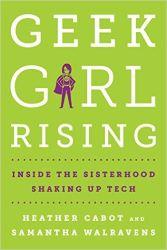
'Geek Girl Rising: Inside the Sisterhood Shaking Up Tech' is a nonfiction book focusing on the women who have taken their place in the tech industry, placing special focus on the women who help empower other women. Each woman is given a snapshot of her successes and story.
The highlight of this books is learning about these impressive women. I can imagine this would be especially empowering for girls who are looking to get into this industry. Over one hundred women are mentioned, and a list of them are included at the end of the book for reference. Furthermore, with this book at the ready, it would be impossible to claim that there aren't sucessful women in tech.
The writing style is quick and snappy, not lingering on any point for too long. It focuses on telling as many stories as possible. However, none of the stories feel empty. Lots of information is fit into small spaces.
My only complaint is that I wished the book had gone more into detail about the challenges women in the industry face. There were brief mentions of sexism in the workplace, but it wasn't discussed much. Though I understand that the point of the book is to inspire, I would have liked a better understanding of why empowerment is so needed in the tech world.
Overall, I would recommend this book to anyone interested in the tech industry or feminism. I would especially recommend it to anyone looking for female role models.
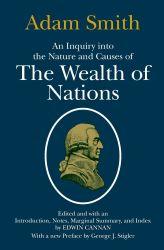
The Wealth of Nations, written by Adam Smith, is the precursor to modern economics as we know it. Smith delves into seemingly everything, from why taxes on gold are less than silver (the answer: because gold, unlike silver, is easily refineable and is far more valuable per ounce. if a high tax on gold were to occur people would have an incentive simply to hide the gold which would be easy because it is smaller to hide/can be hid in a purer form) to how specialization gives way to most profit (for example, 10 men each creating their own pins would be far less efficient that 10 men creating the same pin. Creating the same pin could be divided into smaller tasks, with one person primary repeating one task. This would allow for far more efficiency than individuals doing all the parts of pin making - cutting the wire, flattening the head, attaching the head, sharpening the head, etc - by themselves. The only reason I gave it a four was because of the difficulty I had reading it. When reading, I needed to stop and use the dictionary almost every page because I did not know words. I would definitely not recommend this for a reader looking for a leisurely read. It was anything but.
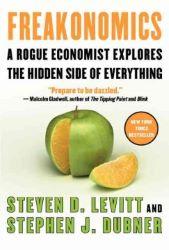
"Freakonomics" written by economist Steven D. Levitt and journalist Stephen J. Dubner, explores unconventional connections between economics and various aspects of society, challenging conventional wisdom. Levitt's research delves into topics such as the economics of drug dealing, the impact of parenting on a child's success, and the hidden motivations behind seemingly irrational behaviors. The authors highlight the power of data analysis and critical thinking to uncover surprising insights. The book ultimately encourages readers to question assumptions, think outside the box, and view the world through an economic lens to gain a deeper understanding of human behavior. I recommend this book to anyone who enjoys economics, as well as questions conventional ideas of society.
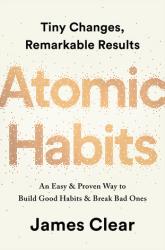
Atomic Habits, written by James Clear, details the formation of beneficial habits and the decimation of detrimental habits. Clear explains the importance of simply showing up for habits. He implements the two minute rule to develop habits: when starting a habit, one should only spend two minutes doing that habit. For example, show up to the gym, work out for two minutes, and then leave. Over time, this creates the ideology that, "well, I am already here [at the gym] so I might as well stay here a little longer and exercise." Primary, this serves to establish the fact that "I am not the kind of person to skip workouts." Clear also describes how we fail to develop successful habits. He insightfully notes that "the greatest threat to success in not failure, but boredom." Remarkably, boredom is one of the largest predicaments humans have. When people are bored, they not only impede their ability to succeed, but they also form bad habits, such as looking at social media. Thus, to be successful people have to be disciplined when they are bored. They have to be "all weather mediators", where your feelings and emotions do not impede your goal of sucess.
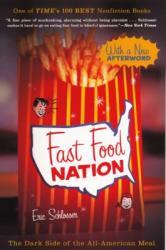
Fast Food Nation is a nonfiction book that is extremely informative about the fast food industry. The book starts with the history of fast food and then informs the audience of business deals, the horrors of fast food, and ways the fast food industry affects others. I picked this book because I wanted to know the truth to what happens in the fast food industry and all of the gross things that are done to the food. Fast Food Nation has several local and state references from Cheyenne Mountain to Greeley, Co. I really liked this book since it was outstandingly educational about every aspect of the fast food industry such as the meat industry, fast food employees, advertising, food poisoning and more; however, I would have liked it more if it went even more in-depth about all the ways the food is handled. Overall, I recommended this book if you want a good nonfiction read and if you want to be more educated about the five to ten dollar meal you buy frequently.
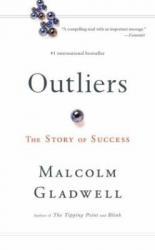
Malcolm Gladwell takes a unique perspective on success in Outliers. Rather than focusing on the brilliance, innate talent, or incredible work ethic of successful people, Outliers concentrates on the advantages and unique opportunities surrounding the successful. Gladwell analyzes the culture, families, generation, and the upbringings of many successful people and groups of people from Bill Gates and successful New York lawyers to Canadian Hockey Players and airline pilots. Above all, Gladwell emphasizes that the truly successful do not do it alone, and Outliers encourages people to examine their own opportunities and advantages so that they too may become successful. I thoroughly enjoyed this book and highly recommend it for everyone.

Naked Economics by Charles Wheelan is an immersive and amazingly simple look at global economics. The explanations and simple and number-free and the examples Wheelan uses give life to the subject which is considered torture buy adults and children alike. The book was required reading for an AP Economics class I took, and it brought the field to life, showing the massive effect of market forces and changes in exports and inflation and much more. It is an amazing introduction to the concepts of economics without the statistics. Anyone who is interested in how economics works or what is really going on when you listen to the federal reserve chair should read this book.
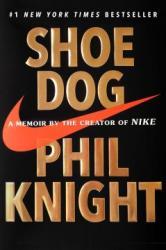
Shoe Dog by Phil Knight is a book that you do not want to miss out on! This book is a memoir about the life of Phil Knight, the founder and creator of Nike. I really liked this book because I love Nike shoes and I am also very passionate about starting my own business someday. So this book gave me a lot of encouragement and motivation to start a business. Shoe Dog goes in depth about all the challenges Phil endured to create the empire that Nike is today. I choose this book because it seemed interesting to get the experiences as well as the ups and downs endured in the process of trying to create a world famous brand. I would highly recommend this book to anyone dreaming of becoming a successful entrepreneur!
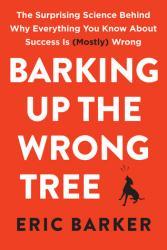
In his book Barking Up the Wrong Tree, Eric Barker explains secrets to success in many areas of life. Using the latest in scientific research, he explains how to "find work-life balance using the strategy of Genghis Khan, the errors of Albert Einstein, and a little lesson from Spider-Man", how to lower stress and increase self love, and move through life more happily
Among other lessons, Mr. Barker teachers readers why most of what they previously believed about success is "wrong". Then he goes on to explain how they can improve themselves and their lives through lessons provided by unlikely - but entertaining - sources.
I would recommend this book to anyone looking to improve success in their lives. It is an excellent, helpful, and humorous read that will be good for any age range 16 and above.
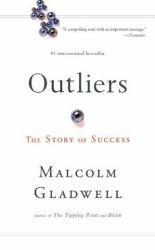
Don't let the genre discourage you from picking up this book. Extremely interesting and eye-opening, this book offers me lots of insight and tips on being successful in your professional and personal life. I'd encourage many young readers like me to pick up this book and give it a try. It's not a book to give excuses to why we are not the next Bill Gates or Einstein. It gives lessons to why these people became successful in the area they were/are successful in, and the steps they took toward it. It's a matter of whether you let their success discourage you or turn it into motivation and lesson to be successful in your own life.
Reviewer Grade: 12